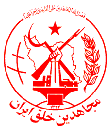 “Bad cases make bad law.” The truth of that law school axiom has rarely been on better display than in yesterday’s decision by the European Court of First Instance to remove the People’s Mujahideen of Iran (Mujahideen-e-Khalq) from the EU’s list of blocked entities. The PMOI had been added to that list by the E.U. Council in May 2002.
“Bad cases make bad law.” The truth of that law school axiom has rarely been on better display than in yesterday’s decision by the European Court of First Instance to remove the People’s Mujahideen of Iran (Mujahideen-e-Khalq) from the EU’s list of blocked entities. The PMOI had been added to that list by the E.U. Council in May 2002.
The European court reversed the designation because the PMOI had not been accorded an adequate hearing, because no reasons had been supplied by the Council to justify the decision, and because the procedures used by the Council to designate the PMOI lacked effective mechanisms for judicial review.
The right to a hearing, according to the court, arose because the order designating PMOI blocked PMOI funds. The court acknowledged that the Council had a legitimate interest in countering terrorism and that this could justify a preliminary order without a hearing; it could not, however, justify a decision to deny a hearing by the Council altogether.
The ruling of the court on the Council’s refusal to state reasons for the designation is why I say that this a bad case making bad law. It is difficult to fathom why the Council never stated any reasons to support the designation of the PMOI since the PMOI’s terrorist activities were known to the entire world and admitted openly by PMOI. These activities, many of which risked civilian casualties by targeting buildings in large urban areas, included the following:
Given the PMOI’s demonstrated and public record of terrorism, it is hard to understand why the Council decided to be cagey about supplying any reason at all for the designation. Any one of the above reasons could justify the designation. And even though the PMOI was urging that it had reformed and was no longer a terrorist group, the Council could legitimately insist that more time needed to pass before the Council could be certain that the PMOI had renounced terrorism. The Court of First Instance indicated that there might be a national security basis for not disclosing particular reasons, but since no specific reasons were given by the Council, the court had no occasion to determine whether that exception might apply to any possible justifications for the Council’s action in this case.
Finally, the court held that the designation procedure lacked adequate provisions for judicial review. Decisions of the Council to designate a terrorist group could only be appealed on the following limited grounds: “lack of competence, infringement of an essential procedural requirement, infringement of the EC Treaty or of any rule of law relating to its application or misuse of powers.” The court found that in order to ensure the right to a fair hearing and to a statement of reasons the reviewing court would necessarily have the right to a fuller review of the record and actions of the Council.
The Council, it seems to me, made a critical mistake in its decision not to hold a hearing or to provide reasons for the designation, particularly where the case for designating the PMOI was so strong. This mistake led to directly to a decision by the Court of First Instance that was broader than it might have been and which may haunt the Council in its efforts to designate terrorist groups and individuals in the future.
 Permalink
Permalink
Copyright © 2006 Clif Burns. All Rights Reserved.
(No republication, syndication or use permitted without my consent.)

 Posted by
Posted by  Category:
Category: 

